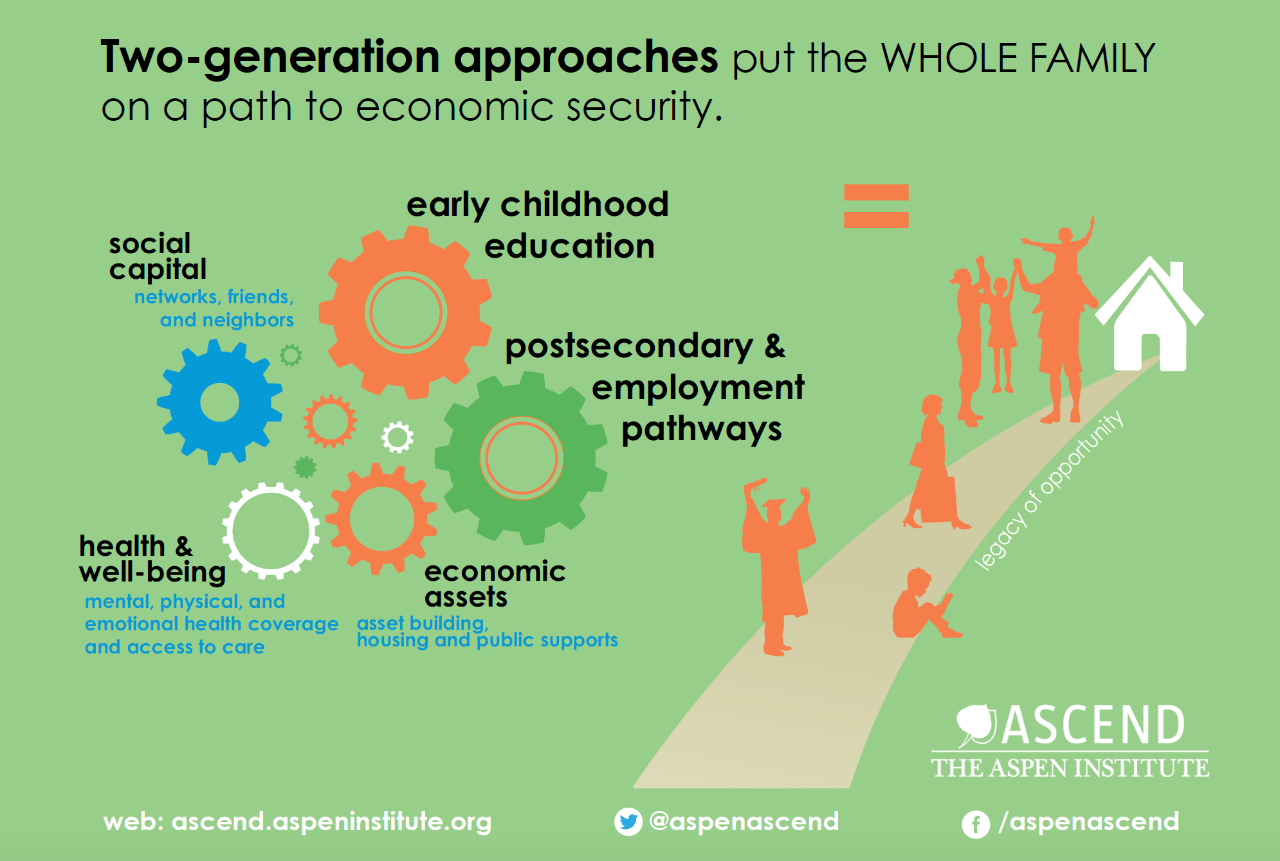2G Universal Outcomes

The 2Gen outcomes are family-focused results that demonstrate a measurable impact for the children and parent, together. Through the use of data, we are able to build awareness and understanding about the 2Gen Approach and share what we are learning in collaboration with state, local, and county partners to further build and enhance 2Gen services. The methodology for determining our universal outcomes included a thorough review of each contract and then an analysis of each outcome. Outcomes and metrics in each contract were matched to the measurable outcomes from the Ascend at Aspen Institute 2Gen Outcomes Bank and documented in a comparison table that encompasses all contract agencies. Based our analysis, we are targeting the outcomes areas below under each of the four 2Gen components to inform future programming and policy improvements.
In addition to tracking and reporting outcomes, our 2Gen Partners will be expected to issue a self-sufficiency and well-being assessment, provided by the Department, to each family to determine their own strengths and areas for improvement; to asses the effectiveness of services being offered and how to direct resources; and to demonstrate the success of the family and program.

Increase Economic Status and Stability
- Improve stable, safe housing conditions or obtain home ownership;
- Increase earned income/wage benefits; Increase participation or enrollment in education and job training opportunities;
- Increase financial literacy; and
- Increase attainment of certifications or post-secondary degrees.

Empower Parents as their Children’s First/ Primary Teachers
- Increase parental engagement in the academic planning and success of their child to improve classroom behavior, attendance, and grades;
- Increase parent’s attendance and involvement in their child’s learning activities through workshops, individualized consultations, or other impactful parental education activities; and
- Improve parenting skills.

Decrease Psychological Distress
- Improve health and well-being of families (physical, mental and emotional health);
- Improve families’ awareness on healthy lifestyle behaviors and available health services and resources;
- Reduce Adverse Childhood Experiences (ACE); and Improve self-advocacy skills for families.

Increase Family Engagement
- Expand families’ networks and connection to other families;
- Increase families’ knowledge of, access to, and utilization of community resources; Increase civic engagement through community involvement and neighborhood outreach;
- Increase family support through youth mentoring programs; and
- Increase family cohesion and communication through workshops, family-centered events, and in-home support services.
Posted July 9, 2019